The answer is more than simple - adware and a PUP. Potentially Unwanted Programs – or PUPs for short: What are they? What do they do to your PC? How do you defend yourself from them? So many questions, so let's get on with it! As you probably noticed, they display ads and redirect you to misleading websites. They can see your browsing history and display you ads based on websites you visit the most.
How did I get a Potentially Unwanted Program or adware on my computer?
Most PUPs find their way on to your computer by the art of deception, or more accurately by being sneakily bundled with another program, tool, application, or file. The publisher of this software or download might be fully aware that a Potentially Unwanted Program is packaged with their product, but oftentimes they are just as an unwitting party to the scourge of the PUP as the rest of us.
The programmers who create and disseminate PUPs are well aware that most of us wouldn't forsake add-on that displays 1-855-770-9879 pop-ups for their inferior product, so they have to use these underhand installation methods instead.
Are Potentially Unwanted Programs dangerous?
PUPs, despite their surreptitious ways and means of installing themselves, are not usually thought to cause you any great harm. Having said that, though, they can be extremely annoying! Especially, 1-855-770-9879 pop-ups saying that your computer is infected. PUPs are not malware or viruses but when you take into consideration the fact that you don't want to see misleading adverts on oyur computer, the fact that the PUP doesn't give you a choice in the matter is seen by many as to be almost as bad.
How to defend yourself from a PUP
But what of those annoying traits we just mentioned? Well Potentially Unwanted Programs can cause your computer to run more slowly, make your internet connection crash, harass you with pop up adverts, and redirect your searches to websites that the programmer wants you to visit – which is the main reason for the PUP being created in the first place. How to defend yourself? Follow the simple steps below:
Don't use random sites to download software – always use the owner's site or a well known reputable provider
Want to view a video clip but it's telling you that you need a new media player? Don't download it – these are prime PUP stomping grounds.
Ensure your computer's security patches are the latest versions and that you have the most up-to-date versions of all software and programs that you're running on your PC installed
If it's already too late and your computer has been infected by adware, then please follow the steps in the removal guide below. If you have questions, please leave a comment down below. I will be more than happy to help you. Good luck and be safe online!
Written by Michael Kaur, http://deletemalware.blogspot.com
1-855-770-9879 Norton Security Warning Removal Guide:
1. First of all, download anti-malware software and run a full system scan. It will detect and remove this infection from your computer. You may then follow the manual removal instructions below to remove the leftover traces of this malware. Hopefully you won't have to do that.
2. Remove 1-855-770-9879 pop-up related programs from your computer using the Add/Remove Programs control panel (Windows XP) or Uninstall a program control panel (Windows 7 and Windows 8).
Go to the Start Menu. Select Control Panel → Add/Remove Programs.
If you are using Windows Vista or Windows 7, select Control Panel → Uninstall a Program.

If you are using Windows 8, simply drag your mouse pointer to the right edge of the screen, select Search from the list and search for "control panel".

Or you can right-click on a bottom left hot corner (formerly known as the Start button) and select Control panel from there.
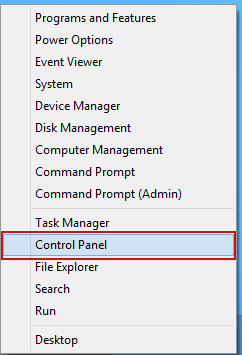
3. When the Add/Remove Programs or the Uninstall a Program screen is displayed, scroll through the list of currently installed programs and remove the following:
- CrazyScore
- LyricsSay-1
- Websteroids
- BlocckkTheAds
- HD-Plus 3.5
- and any other recently installed application
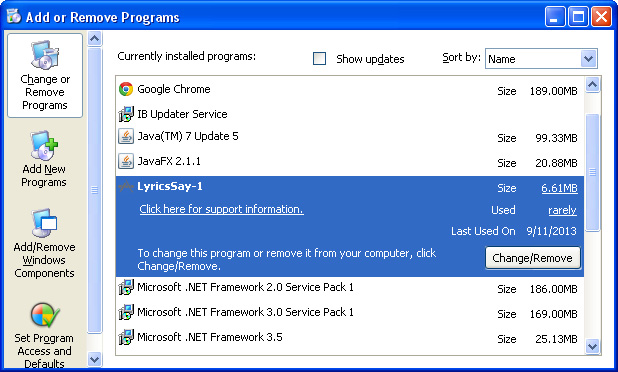
Simply select each application and click Remove. If you are using Windows Vista, Windows 7 or Windows 8, click Uninstall up near the top of that window. When you're done, please close the Control Panel screen.
Remove 1-855-770-9879 pop-ups from Google Chrome:
1. Click on Chrome menu button. Go to Tools → Extensions.
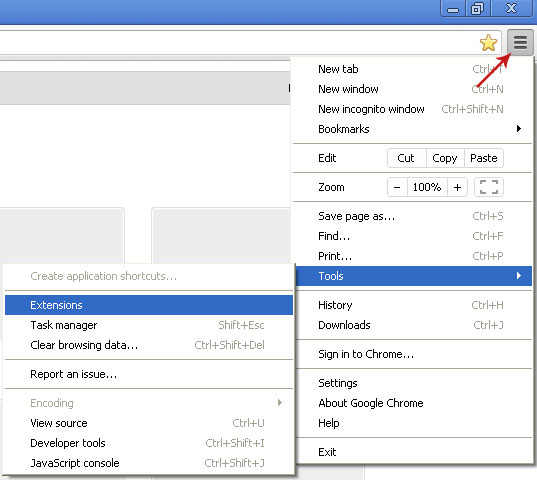
2. Click on the trashcan icon to remove CrazyScore, LyricsSay-1, Websteroids, Quiknowledge, HD-Plus 3.5 and other extensions that you do not recognize.
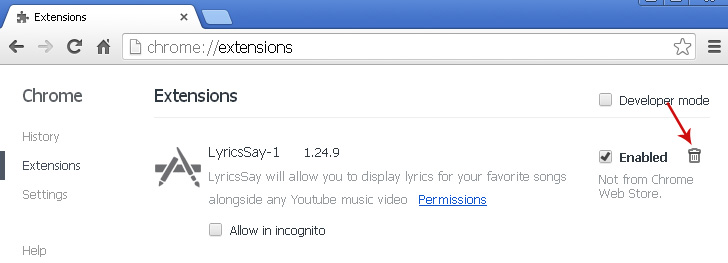
If the removal option is grayed out then read how to remove extensions installed by enterprise policy.

Remove 1-855-770-9879 pop-ups from Google Chrome:
1. Open Mozilla Firefox. Go to Tools → Add-ons.

2. Select Extensions. Click Remove button to remove CrazyScore, LyricsSay-1, Websteroids, Quiknowledge, HD-Plus 3.5 and other extensions that you do not recognize.
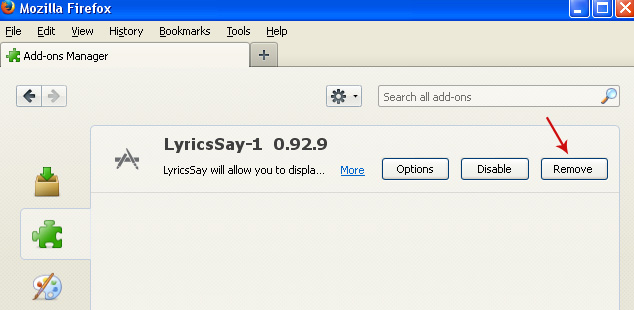
Remove 1-855-770-9879 pop-ups from Internet Explorer:
1. Open Internet Explorer. Go to Tools → Manage Add-ons. If you have the latest version, simply click on the Settings button.

2. Select Toolbars and Extensions. Click Remove/Disable button to remove the browser add-ons listed above.
1-855-770-9879 Norton Security Warning Support Scam
4/
5
Oleh
soni agus


